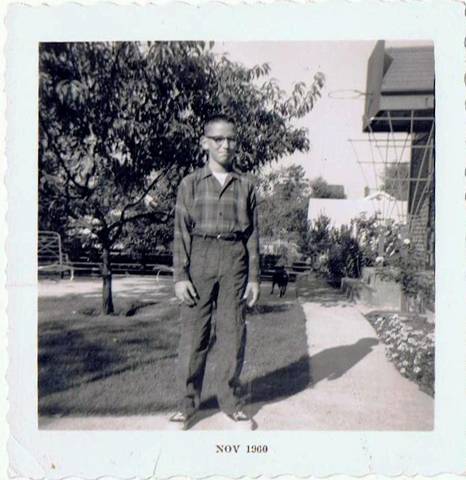What is a Zine?
Imagine My Surprise
So there we were last Saturday at the Timberland Regional Library in Olympia, one of our usual destinations on weekends, bumping shoulders with the homeless, the rich, the punk and the grunge, looking for a book or two to fuel our fantasies for another week.
Bev (my wife) was off in search of some audio books while I scoured the mystery section. I found a couple books that looked interesting and then went off to find my spouse. Turning a corner I came across a section that was brand new….THE ZINE SECTION….and I stopped in my tracks and was immediately spellbound.
It wasn’t that zines (pronounced zeens) were new to me, but I wasn’t aware that the library had finally recognized their literary significance and given them their own section.

What Is a Zine?
According to Wikipedia, a zine is “most commonly a small circulation, self-published work of original or appropriated texts and images usually reproduced by a photocopier. It is generally produced in numbers fewer than 1,000, and profit is not their primary intent.”
Topics covered pretty much span the social landscape, from politics to poetry, art to design, and from personal journals to social theory.
Zines are written in a variety of ways, from desktop publishing to comics to handwritten text, with print the most popular.
How Long Have Zines Been Around?
Oh my goodness! Has anyone out there ever heard of Thomas Paine? Mr. Paine, back in the 1770s, published a little zine called “Common Sense,” and that just happened to lead to something called the American Revolution. Before Mr. Paine took to the printing press, however, zines could be found across Europe, most often written by political dissidents. Benjamin Franklin even published a zine (literary magazine) for psychiatric patients at a Pennsylvania hospital.
The word “zine” is short for fanzine or magazine, depending on which source you use for your information, and the first reference to it as an actual literary genre was in 1946 when it was mentioned in a book called “Starting Stories.”
The Zine World in 2015
If you look closely enough you’ll find that zines are distributed in a number of places you frequent during your daily life. They can be found in bookstores, coffee shops and record stores. They are traded like baseball cards at zine symposiums and publishing fairs. You can find them at concerts and media outlets. You can find them online or you can order them through the mail.
Although most zines are self-published, there are several independent publishers who specialize in zines. One popular zine publisher is Nieves Books in Zurich, while the largest in the UK is Café Royal Books, founded by Craig Atkinson in 2005.
If you are looking for mail-order distributors, try Last Gasp in San Francisco, Parcell Press in Philadelphia, or Microcosm Publishing in Portland, Oregon.
Zines Are Here to Stay
How’s that for stating the obvious? Since they have flourished since the 1770s, and even survived the online publication craze, I think it’s safe to say that zines are here to stay, and I, for one, absolutely love them.
Zines are bare root, down and dirty, writing. Zines are a glimpse back in history, before major publishers took control of the marketplace. They harken back to a time when it was nearly impossible to reach a mass market, and writers holed themselves up in their rooms and pounded out words in hopes that a few hundred might read them. They are the most basic form of communication and free speech, one person sharing thoughts with another, with no thought of earning a profit, the only goal….to be heard!
How to Create a Zine
The wonderful aspect of creating zines is that there are no rules. You can make them any old way you want. You can use Microsoft Word to create it, you can use a more expensive program to create it, or you can type articles and paste them by hand on a piece of paper and then photocopy it when you are done.
Zines come in all sizes and shapes, and they span the gap between rudimentary and professionally-produced.
So, to answer the question how….you just begin. Choose a theme and start writing.

Sign up for my writing blog
- William Holland | Helping Writers to Spread Their Wings and Fly
It's all about writing...tips, discussions and much more
The Flying Dutchmen
The year was 1962. Elvis still reigned supreme on the music scene, but rumblings could be heard from abroad and music was about to change. In fact, in 1962 we really had no clue how much change was going to happen in a very short period of time. All we knew at that time was that hula hoops were fun and Corvettes were way too cool!
My best friend in 1962 was Bill Bird. The two Bills, hanging out in Tacoma, Washington, relatively bored one afternoon, looking for a new adventure.
We decided to publish a magazine about our neighborhood…local news for the local folks…and we were going to call it the “Flying Dutchmen.” Get it? Bill Bird…Bill Holland…Flying Dutchmen? Come on, we thought that was pretty clever back then.
Our magazine was printed by hand, and it included hand-drawn pictures and maps. We went around the neighborhood interviewing our neighbors, looking for the next great news story, and when we were done writing and pasting, we had fifty copies made by a friend’s dad who worked for an independent printer, and we distributed the copies around the neighborhood for a nickel each.
Our first zine!
Fifty years later I have written over 3,000 articles and three novels and I absolutely love my life as a writer/author.
Yes, I have a soft spot on my heart for zines. Keep your eyes open the next time you are out and about, and if you spot a zine, pick it up and give it a read. It’s the least you can do for a fellow writer who understands that writing should first, and foremost, be about the love of communication.
2015 William D. Holland (aka billybuc)
“Helping writers to spread their wings and fly.”









